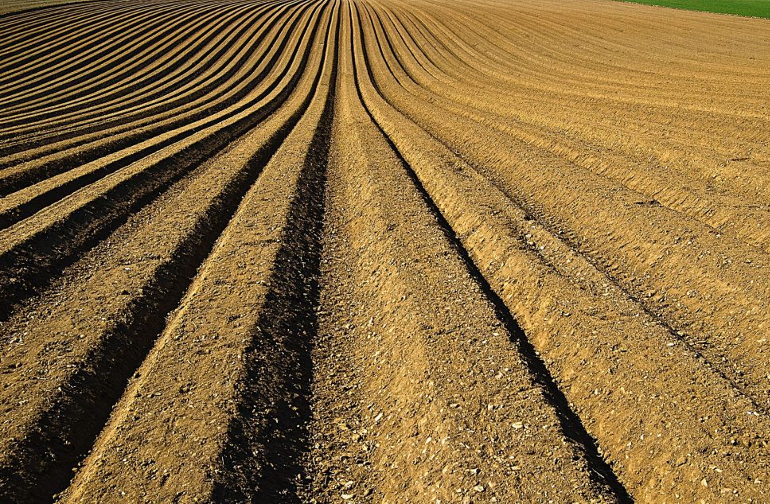Also posted at the Roosevelt Institute
The Democratic primary debate on 27th June was probably the first time that soil management — as climate policy — was ever mentioned at a primetime Presidential campaign event. It was also one of the first tangible mentions of farm policy in two nights of debates.
“Carbon farming”—building soil vitality to pull carbon dioxide out of the atmosphere—is essential for reducing the agricultural industry’s greenhouse gas emissions. But this practice alone is not enough. If we want farmers to adapt successfully to climate change and help solve the crisis, we must understand the economic powers that block family farms from making a fair living and investing in climate-friendly farming methods.
Presidential candidates are proposing an unprecedented series of climate plans, but a transition for farmers is often not included. Any set of climate policies, including a Green New Deal, must simultaneously curb the power of corporations and Wall Street to control farming on their terms, and redirect the federal government to economically empower independent family farms over global agribusiness. (The Roosevelt Institute calls this a “one-two punch.”)
Many family farmers are currently losing money, farm debt is rising to levels last seen in the 1980s, and farmland ownership trends reflect a steady march toward consolidation. Among farmers who have survived, many are contractually bound to agricultural monopolies, particularly poultry and pig producers, that have enormous power to set terms and prices. They have effectively become contract workers with increasingly less control over their growing practices and their income.
Amidst this vulnerability, the agricultural sector is also an industry contributing to the potent greenhouse gases that are driving the climate crisis. Industrial agriculture systems are largely responsible for 9 percent of US emissions, particularly the giant factory farms managing thousands of animals and their prodigious manure, as well as applying increasingly more synthetic fertilizers to grow feed crops.
Yet, agriculture is unique amongst “dirty” industries because, unlike coal or oil, it must be wholly transformed to both cut its emissions and regenerate what could be a major carbon sink – American farmland. But first we need to curb the power of Big Ag.
This means strengthening antitrust enforcement for agricultural conglomerates, which a handful of Democratic candidates have proposed. It also requires restricting the outsized influence of the financial industry on farmland, agricultural commodity markets, and in our economy more broadly. As farmers age out – or are priced out – both Wall Street and international investors are buying up farm acreage seeking short-term returns, not making long-term commitments to rural communities, reducing water pollution, or soil health. The impacts of this trend are only just being studied, but considering the impacts of “financialization” on the rest of our economy – diminished investment in productive growth, skyrocketing executive corporate pay, broad economic inequality, and let’s not forget the housing crisis – it stands to reason this trend will not bode well for farmers and our efforts to solve our climate crisis through agricultural reform.
Empowering family farms also means getting to the heart of our current farm crisis: overproduction. We are producing too much corn, soy and dairy, in particular, that is flooding the market, and driving prices down and ultimately farmers off the land. Addressing this problem – through both a supply management program and a price floor (kind of like a minimum wage for farmers) – would deliver economic benefits and improve soil and water quality.
And, yes, the federal government should also directly pay farmers to practice regenerative farming methods like planting cover crops and integrating trees with pasture (called silvopasture). These carbon farming methods can help farmers better withstand extreme weather and capture carbon through the soil, while providing an income stream that would also help build resilience against Big Ag.
Democratic candidates have clearly thought much more about our climate crisis since the last Presidential election. But to help farmers make the transition to regenerative, climate-friendly agriculture, the candidates must understand how corporate and financial powers are making farmers so financially vulnerable. Our response to climate change should not be separated from those who work the land, and the soil.





